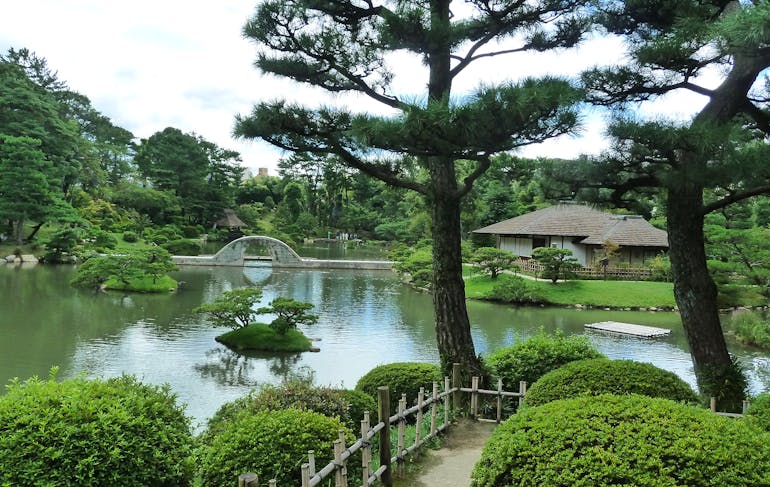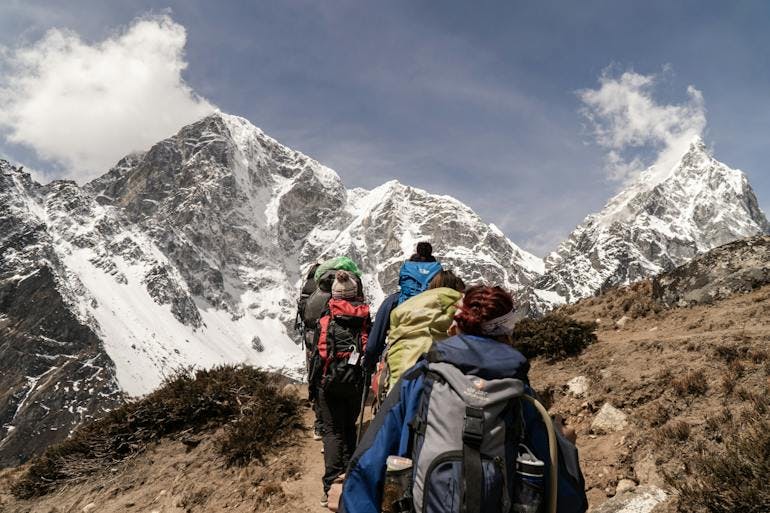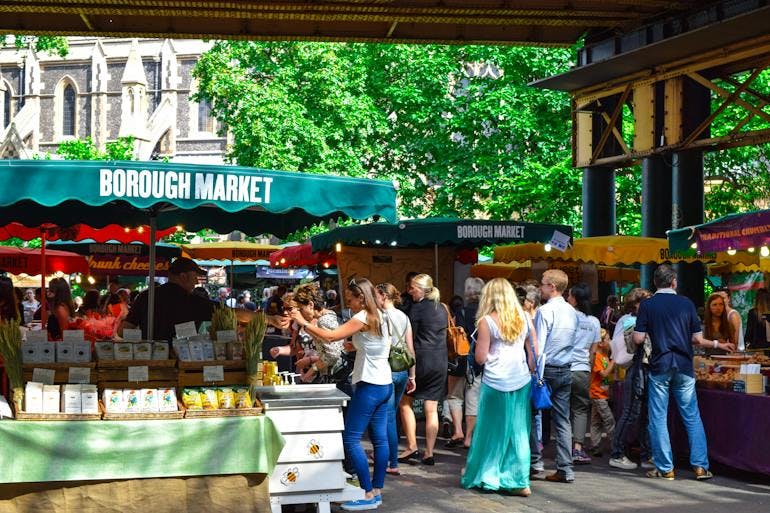Sustainable Travel 101

17
Dec
Sustainable Travel 101
If you’re wondering what sustainable travel is, or where to start, you’ve come to the right place.
Hopefully, you’re already taking some sustainable actions in your personal life. Maybe this means taking the bus to work, or committing to a zero-waste home.
There are so many things that count as being “sustainable” to some degree, but many sustainably-minded people stumble when they hear the word “sustainable” followed by “travel”.
What exactly does sustainable travel mean? Let’s start with the definition of sustainable tourism:
Sustainable tourism takes full account of its current and future economic, social and environmental impacts, addressing the needs of visitors, the industry, the environment and host communities.United Nations World Tourism Organization
3 pillars of sustainable travel
Sustainable travel, therefore, is an umbrella term for the many ways that individuals can travel in a way that supports sustainable tourism at your destination. You can think about your travel behavior within the context of these three pillars:
- Having a positive impact on the environment
- Respecting the local society and culture
- Promoting the local economy
If that sounds simple to you – great! If you’re scratching your head, the below should help: we’ll take you through examples of actions you can take related to each pillar.
Sustainable travel actions for the environment
This is not an exhaustive list, but it should start increasing your awareness about what types of things to think about on the go.
- Transportation: This can include taking public transportation to and from the airport, visiting destinations closer to home so you travel shorter distances, limiting your flights per year, and making an effort to walk and use rental bikes while on your trip.
- Lodging: Seek out certified eco-lodging where possible. The more people who demand green accommodations, the more normalized it will become. Consider staying in boutique guesthouses, or asking your hotel about their water and energy consumption.
- Activities: Make zero- or low-carbon emission activities, like cycling, hiking, trekking, or kayaking the focal point of your trip. It’s likely these will be in nature reserves, parks, gardens, or other protected natural areas. Enjoy the beauty – and maybe consider donating to its preservation!
- Products: Bring zero-waste products with you. Things like a reusable water bottle, collapsible cutlery, extra tote bags, and hygiene bars (for example, a shampoo bar) will reduce your single-use and plastic waste. Receive our complete sustainable travel packing list for free by subscribing to our monthly newsletter.

Sustainable travel actions to support local societies
First, there’s a concept you should be aware of: tourism dispersal. It’s considered as a possible antidote to over-tourism.
Tourism dispersal is the concept of encouraging travelers to go beyond the ‘hot spots’ to help reduce the burden on places where the amount of tourism is causing damage, and spreading the benefits of tourism to less-trafficked areas.
Keep this in mind as you think about what your real impact is on the societies and cultures of the places you visit. Tread lightly, and approach your destination with an awareness of your impact on others, and a genuine willingness to learn from those different from yourself.
- Be respectful: This goes for dress codes (such as covering your shoes and toes at sacred sites), cultural norms (for example, you may need to tone down the PDA in some places), and general niceties – like learning how to say a few words in the local language.
- Be adaptable: Table service might take longer, public transportation might be less frequent, tipping customs might be different, and people may be more polite or rude than you expect. Remember, you are the guest in somebody else’s home when you travel. Be patient and kind.
- Connect with locals: Speaking with locals is perhaps the best way to truly get a feel for a place. Befriend your barista, do a homestay, or participate in a local workshop or class. You’ll understand your destination on a deeper level and might come away with a new friend or get tipped off to a hidden local gem.
- Get off the beaten track: Seek out authentic experiences that will draw you away from the hordes of tourists. This might mean going to a lesser-known destination or monument or doing an unusual activity. A unique experience will give you a deeper insight into the culture, and perhaps feel all the more special because not every tourist will have done it.

Sustainable travel actions to support the economy
Here’s another concept you should know about: economic leakage.
Economic leakage refers to money leaving (or leaking out of) the destination’s economy and trickling back to parent companies generally based in countries that have a more developed economy.
While economic leakage is usually a bigger problem for island states, smaller nations, and developing countries, you should be mindful about keeping as much of your tourism money as possible in the destination you visit by doing the following:
- Support local businesses: Stay in boutique accommodations, eat at local restaurants, and take tours with local operators and guides. Wherever you spend money, try to confirm that the business is owned and managed by locals, as well as provides employment with fair wages to local residents.
- Watch what you buy: Double check that any local products or souvenirs you buy are actually made in the destination. You’d be surprised at how many knick-knacks look local but are made in a different country. If you’re not sure where something was created, just ask. Locals are typically quite proud to inform you when something is a handmade or regional product.
- Spread out your support: Visiting different restaurants and shops throughout your stay can help support more people in the local community rather than concentrating your tourism revenue in only a few places.

By the way, we encourage you to carefully weigh whether or not you stay at an all-inclusive resort. While the following does not apply to 100% of all-inclusive resorts, please consider that:
- Many are owned by parent companies in first-world countries, setting the stage for economic leakage
- They may employ locals primarily for the menial, lower-paying tasks rather than higher-paying management roles
- By their nature, they reduce motivation for travelers to spend money in the community beyond the resort
Overlap between the 3 pillars
If you’ve picked up on some overlap between these three pillars, you’re not wrong.
Caring for the environment preserves the land that locals call home and can also help protect public health in the community through downstream effects. Supporting local businesses helps the local economy as well as the residents who run those businesses.
The intertwined nature of these pillars is part of what makes sustainable tourism so complex and nuanced, and it’s also why it’s so important to think about how your individual actions can impact these three areas: the environment, societies, and economy.
Parting thoughts to help you think sustainably
We want sustainability to be easier to incorporate into your travels, whether you’re a solo backpacker, a group trip enthusiast, or a couple seeking a luxury retreat. Sustainability might not be the singular driving factor in planning your next vacation (yet!), but if you’re at least thinking about the three pillars of sustainable tourism, that’s a great start.
The idea of sustainable tourism will become increasingly mainstream. Sustainable travel shouldn’t feel inaccessible, overly expensive, or like you’re making a compromise. Most of the time, you can go where you want to go, and do what you want to do – but there will be a more responsible way to do it and a less responsible way to do it.
Yugen Earthside is here to help you on this journey by...
- Increasing your awareness through informative blog posts
- Giving you sustainable tourism resources
- Helping you learn about the climate impact of travel and what you can do about it
- Making it easy to discover the best sustainable experiences we can find
Yugen Earthside is a certified net-zero Social Purpose Corporation dedicated to promoting the long-term, responsible growth of tourism. We automatically include carbon removals with each guest's booking and donate at least 1% of gross profits to impact projects aligned with the United Nations Sustainable Development Goals.
Armed with this knowledge, we warmly invite you to browse our trips and travel sustainably with us!



